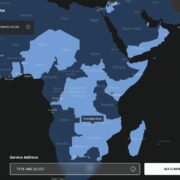By Ross Moyo
Zimbabwe Gender Commission is in an Online Initiative Updating Gender Data Guiding Women’s Land Rights, Economic Participation and Social Equity Policy-making following Zimbabwe Gender Commission Launching National Gender Equality Monitoring System.
This was revealed by UN technical advisor Edna Akullq who emphasized the system’s innovative design, noting it adapts continental gender indicators to Zimbabwe’s specific national context while creating institutional mechanisms for sustained implementation. A special oversight committee comprising government, civil society and international partners will monitor progress.
The Policy analysts suggested the timing proves strategic, as ” the new gender data system will directly inform Zimbabwe’s upcoming second National Development Strategy.”
The framework’s implementation comes as women’s rights organizations have increasingly called for more rigorous measurement of gender gaps, particularly in economic participation and political representation.
Zimbabwe joins a small but growing number of African nations developing sophisticated national systems to track gender equality commitments, signaling a new phase in evidence-based policymaking for women’s empowerment across the continent with this latest move.
The country has established a groundbreaking unified framework to monitor gender equality, marking a transformative shift in how the nation tracks progress toward women’s empowerment with the new system, adopted last week following intensive consultations, replacing the country’s previously fragmented approach to gender statistics with a comprehensive national standard.
This was Developed through technical collaboration with the UN Economic Commission for Africa, and the framework integrates all of Zimbabwe’s international gender equality commitments into a single monitoring structure. The initiative comes as response to years of challenges with inconsistent and outdated gender data that have hampered effective policymaking regarding women’s land rights, economic participation, and social equity.
“This represents more than bureaucratic reform – it’s about changing how Zimbabwe understands and addresses gender inequality,” said Egnes Nhengo, Gender Director at the Ministry of Women’s Affairs who described the previous system as crisis-driven, with ministries often scrambling to submit incomplete data just before reporting deadlines.
Common indicators across six fundamental areas of gender equality were standardized by this framework which included economic resources, health services, education access, human rights protections, political participation, and environmental impacts.
Zimbabwe National Statistics Agency (ZIMSTAT) is working with line ministries to establish baseline measurements by August, with the first annual gender equality report expected in early 2026.














Comments